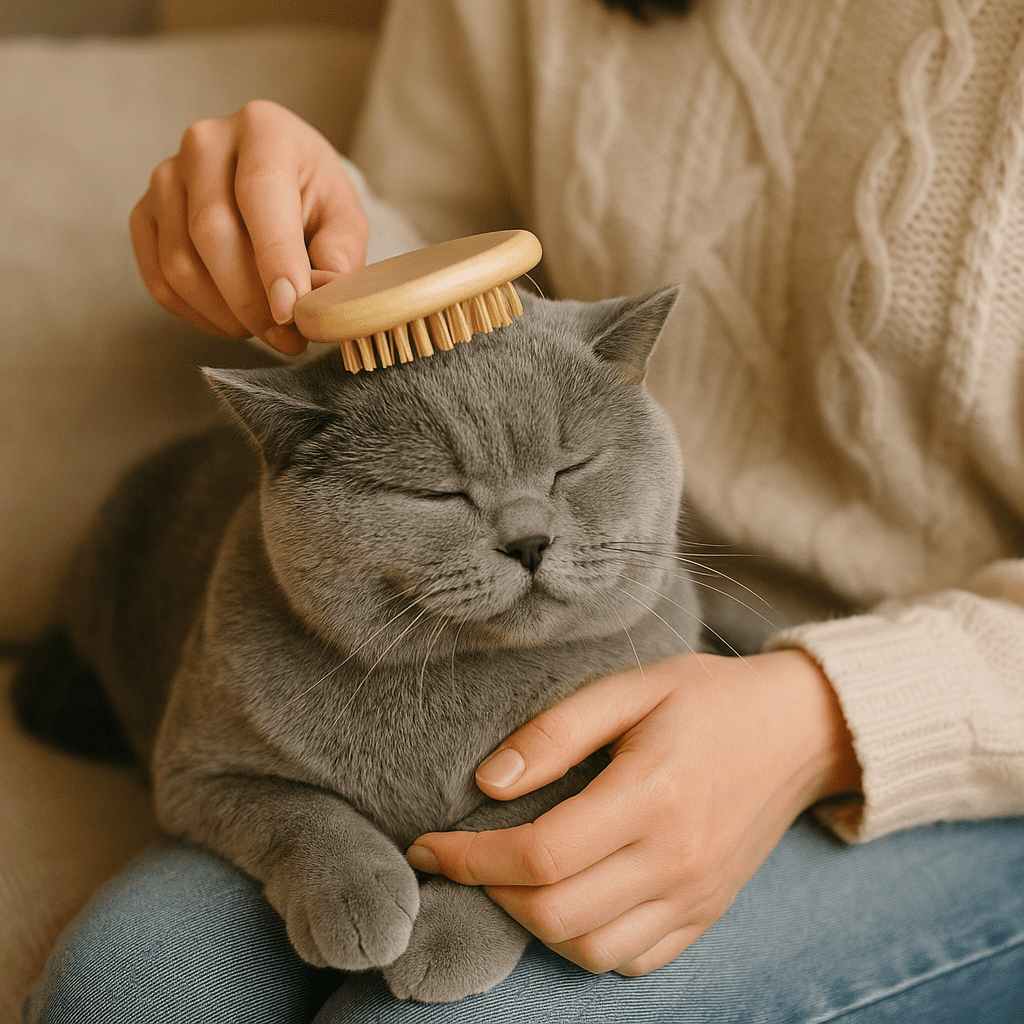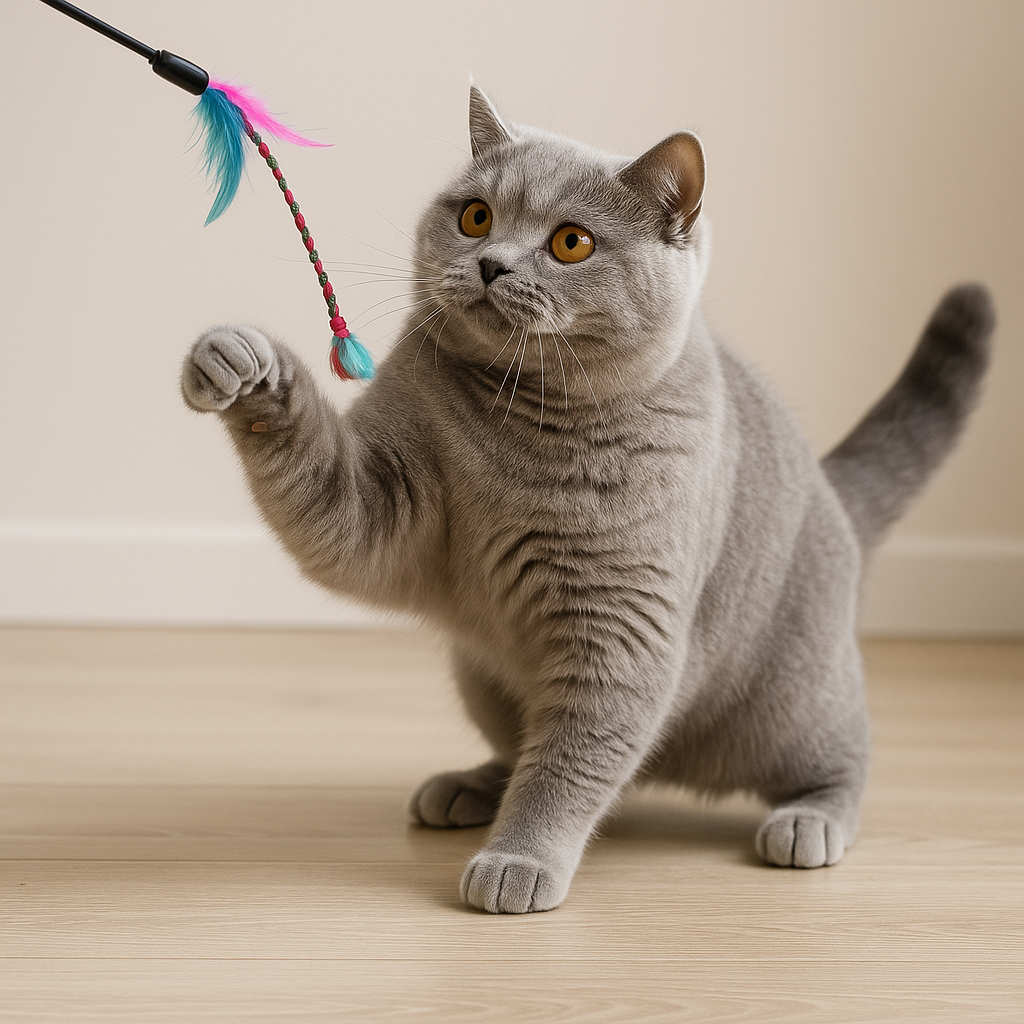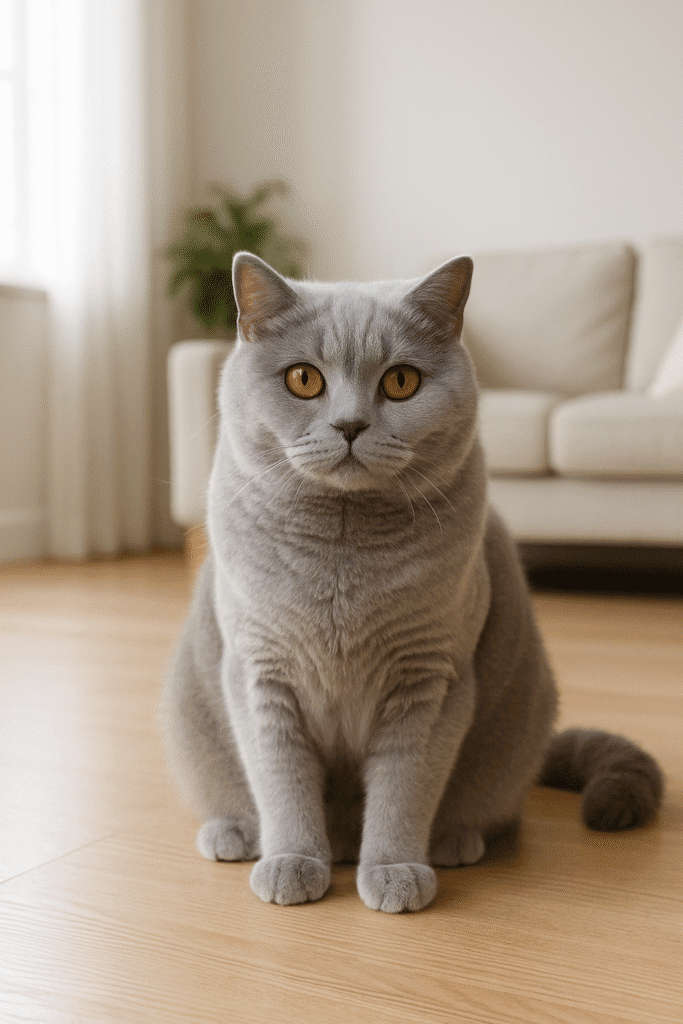British Shorthair Cats: Personality & Care Guide
The British Shorthair is one of the oldest and most beloved cat breeds in the world. Known for their round faces, plush coats, and calm temperament, these cats have captured the hearts of families for centuries. In this guide, we’ll cover everything you need to know about the British Shorthair, including personality traits, grooming, care requirements, health issues, and whether this breed is the right fit for you.

Personality of British Shorthair Cats
British Shorthairs are often described as “teddy bear cats” due to their round faces and affectionate personalities. They are gentle, calm, and incredibly loyal to their families. Unlike high-energy breeds like the Bengal or Siamese, the British Shorthair is more laid-back and prefers a quiet household.
Key personality traits include:
- Affectionate but not clingy – They enjoy spending time with family but aren’t overly demanding.
- Independent – They can entertain themselves while you’re away at work.
- Quiet and calm – Not known for excessive meowing, they are ideal for apartments.
- Loyal companions – Once bonded, they form a strong connection with their owners.
👉 If you’re curious about another famously affectionate cat, check out our guide on Maine Coon Cats to compare personalities.
Appearance and Physical Traits
The British Shorthair is instantly recognizable due to its round face, large copper or gold eyes, and dense plush coat. Their muscular, stocky build makes them one of the most solidly built domestic cats. Popular coat colors include the iconic “British Blue,” but they also come in white, black, cream, lilac, and tabby variations.
Size and Weight
British Shorthair males typically weigh between 12–17 pounds, while females are slightly smaller at 9–15 pounds. Despite their cuddly appearance, they are not lap cats by nature and prefer sitting beside you rather than being carried.
Care Guide for British Shorthair Cats
1. Grooming Needs
Even though they have short hair, the British Shorthair’s coat is dense and plush, which requires regular grooming. Weekly brushing helps remove loose fur, reduces shedding, and prevents hairballs. During shedding seasons (spring and fall), brushing should be increased to 2–3 times per week.
👉 For comparison, long-haired cats like the Persian Cat need daily grooming, while the British Shorthair is more low-maintenance.
2. Diet and Nutrition
A balanced diet is crucial for maintaining the British Shorthair’s health. Due to their stocky build, they are prone to obesity. Owners should feed them high-quality cat food rich in protein and low in fillers. Portion control and regular mealtimes are essential to prevent weight gain.
Healthy food tips:
- Feed age-appropriate food (kitten, adult, senior formulas).
- Include both wet and dry food to promote hydration and dental health.
- Provide clean, fresh water at all times.
3. Exercise and Activity
While British Shorthairs are not as energetic as breeds like the Abyssinian, they still require daily playtime. Interactive toys, scratching posts, and puzzle feeders help keep them active and mentally stimulated. Without exercise, they are at higher risk of obesity.
4. Litter Box Habits
British Shorthairs are clean cats and appreciate a tidy litter box. It’s recommended to scoop daily and fully clean the box at least once a week. Covered litter boxes often work best as these cats enjoy privacy.
Health Issues in British Shorthair Cats
Like all breeds, the British Shorthair is prone to certain health conditions. Responsible breeders screen for genetic issues, but owners should still be aware of potential risks.
Common Health Concerns
- Hypertrophic Cardiomyopathy (HCM) – A common heart disease in cats.
- Polycystic Kidney Disease (PKD) – Though less common, regular check-ups can help detect it early.
- Obesity – One of the most significant health risks due to their stocky build.
👉 You can read our detailed article on Preventing Obesity in Pets for diet and exercise strategies tailored to cats.
Lifespan
British Shorthairs are generally long-lived cats, with an average lifespan of 12–20 years when provided with proper care, diet, and veterinary checkups.
Is the British Shorthair Right for You?
If you’re looking for a calm, loyal, and easy-going cat, the British Shorthair is an excellent choice. They adapt well to apartment living, get along with children, and even tolerate other pets. While they may not be lap cats, their companionship and affectionate nature make them a favorite among families worldwide.

FAQ: British Shorthair Cats
Do British Shorthairs get along with dogs?
Yes, they generally coexist peacefully with calm and well-trained dogs.
Are British Shorthairs hypoallergenic?
No cat is truly hypoallergenic, but their short, dense coat may trigger fewer allergic reactions compared to long-haired breeds.
How much grooming do they need?
Weekly brushing is sufficient for most of the year, with more frequent grooming during shedding seasons.
Conclusion
The British Shorthair cat is the perfect blend of independence, loyalty, and charm. With proper care, they can live long, healthy lives and bring joy to any household. Whether you are a first-time cat owner or an experienced pet parent, the British Shorthair’s gentle temperament makes it a breed worth considering. For more breed comparisons, check out our articles on 👉 Maine Coon Cats and 👉 Ragdoll Cats.


핑백: British Longhair Cat Care Guide: The Fluffy Royal That Loves Cuddles
핑백: Scottish Fold vs British Shorthair: Which Calm Cat Breed Fits You Best?